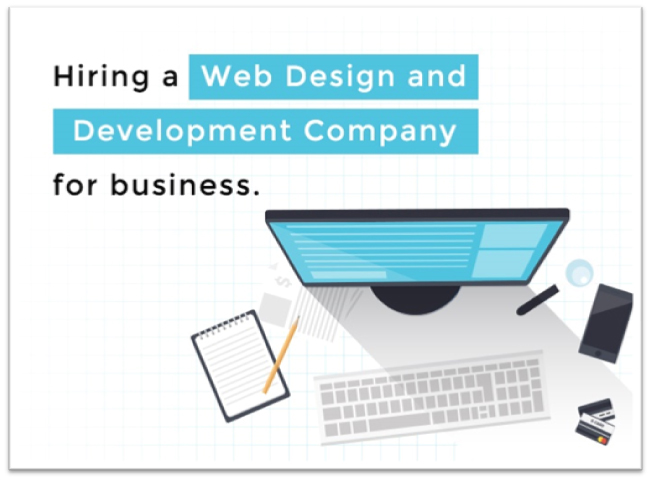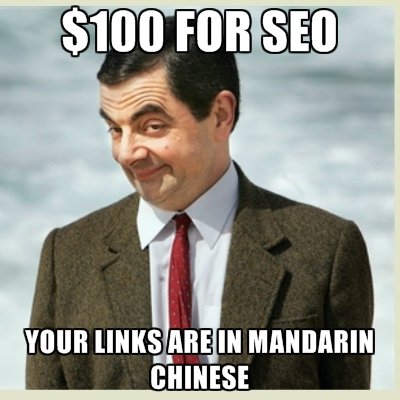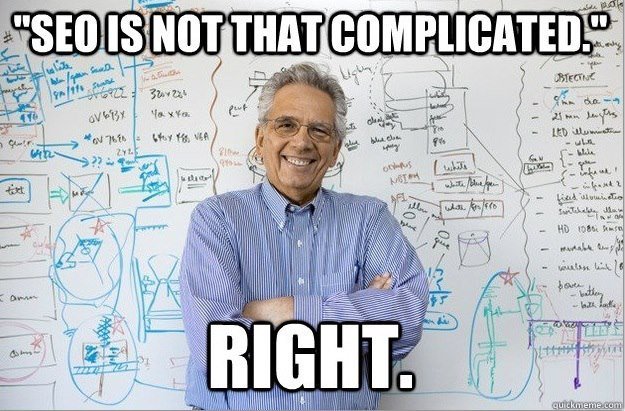
If you’re reading this, you’re either contemplating getting a website (or redesigning the one you have) – or you’re tired of messing around with coding and other back-office features of WordPress, and you’ve decided to let a professional handle your website for you. Some insurance agents don’t have the time to build and maintain their own website, like we covered in our last blog. There’s no shame in outsourcing this work to more skilled individuals; unfortunately, in a world full of hucksters, pricing variances, and the dreaded blackhat online marketing methods – you need a web designer that you can trust.
In this post, our mission is to compare the top web designer agencies that specifically cater to the insurance industry. We hope through our comparative analysis that the next time you contemplate hiring a web designer, you’ll know who’s qualified.
Some of the topics we’ll go over in this article:
- The two major CMS options agents must choose between when hiring a web design agency
- The four ways you will pay for a website
- What additional services web designers offer that may help bring in internet insurance leads
- Pros and cons of the web designers we reviewed (including price comparisons)
If you’re looking for a more DIY approach, or a foundational know-how to better judge these designers, brush up the basics of designing your own insurance website by checking out this month’s sister article on our blog.
Your Choice Between PHP and WordPress
Before you start to look for an insurance website designer, you need to decide whether you’d rather have a website built on the popular content management system (CMS) WordPress or a less flexible platform like PHP (Hypertext Preprocessor) that utilizes HTML coding? What’s the difference between these two? In a nutshell, PHP is the basic programming language which requires extensive coding knowledge, whereas WordPress is an out-of-the-box, ready-to-go CMS solution that is easier to use for the average agent.
The majority of web designers we reviewed (75%) use a coding language like PHP to create or redesign their websites. Typically, these firms create their own proprietary templates that they alter for each client. Depending on how much customization they offer, this can be simpler to utilize, both for the designer and for the agent that’s just looking for a simple consumer-facing website.
The other 25% of the designers we researched use WordPress, which we feel is a more superior platform because it’s way more customizable, especially for agents who don’t have extensive coding skills. It’s much easier to expand a site’s capabilities and functionality with WordPress by simply adding plugins and widgets – which would have to be coded from the ground up on a PHP site.
Here are five major differences between coding a website in PHP and WordPress, (summarized from this other comparison article):
- WordPress is easier and quicker for someone without coding knowledge to use, whereas PHP requires extensive web development skills to create the website you want from the ground up.
- Pre-built plugins (like the 40,000+ that WordPress has) let you add tools or functionality to your website – like social sharing or ecommerce capabilities – without having to learn coding. If you want extra efficiency or effects on a PHP site, though, you’ll often have to pay a web designer to create and code it for you.
- Of the 10+ million websites out there, WordPress ranks the highest in both number of websites that use it (60%), and number of keywords that rank using its CMS platform. For more stats on WordPress, check out this article. With the ease and multitude of plugins, it’s often easier to rank a site or page for a given keyword on WordPress than PHP – despite what a potential designer may say.
- WordPress is free, built on an open source platform, and requires no coding knowledge. PHP is more complex, so you would have to pay a skilled developer to design a PHP site for you. If you’re outsourcing your website development either way, you may not think that it matters, but think ahead to when you want to make changes to your website – would you rather be able to do it yourself free and easily, or pay a developer to go back in and recode it?
- Depending on the skills of the developer or agency and the quality of the site they build, PHP may not be as secure as an up-to-date WordPress site. PHP leaves you at the mercy of your coder’s knowledge, skill and ongoing oversight – whereas WordPress is constantly maintained by an expansive community of professional and hobbyist coders.
Even though I clearly have a personal preference, either option will give agents an attractive and professional-looking website. But if you care as much about functionality as you do about looks, or if you want your website to be portable if you decide to stop working with a certain designer, you might want to consider something more customizable like WordPress. Most web designers offer back-office logins where you can make changes to your site, whether it’s built on WordPress or PHP – however, adding increased functionality may have to be coded into PHP at a great additional cost, while WordPress makes it as easy as downloading a plugin.
4 Ways You’ll Pay for a Website
Agents who are unfamiliar with how website designers make a living can fall prey to gargantuan set-up fees or unnecessarily expensive monthly retainer fees. In reality, an agent is likely to pay for a website the following ways:
- An initial set-up fee that covers some or all of the expenses commonly associated with setting up a website, e.g. uploading the logo, changing the color palette, inputting agent details, purchasing and uploading pictures, creating additional pages and/or content.
- A recurring monthly fee often called the “maintenance fee” that you can compare to owning a condo – as long as you own it, you’ll always be paying the monthly maintenance fee. Many sites that charge both the initial set-up fee and an ongoing maintenance fee; only two insurance web design companies, Insurance Splash and Agent Quote, have a monthly maintenance fee without an additional set-up fee.
- Al a carte fees for add-on services like content development, SEO, or social media management (SMM) – which we will cover later in this article.
- Some insurance website designers offer discounts if you subscribe to their other services like CRM and rater technology, like EZLynx or ITC.
Now I’m sure you’re wondering: aren’t there any free website options for insurance agents? Why yes, actually, there are – but it may cost you. Like we mentioned in our blog post on Free Insurance Leads, there’s no such thing as a free lunch. Similarly, if you come across a free option, it’s because you’re probably being baited in other ways like lower contracts or lower commission levels, or it’s because they want you to eventually contract with them, as with NAAIP.
Just know, if you do get a “free” website, it’s probably not going to be the most stellar vehicle for bringing in web leads, and customizability will be minimal.
Regardless of how (or how much) you’ll pay for your website, be sure to total up your annual cost so there are no surprises. Make sure you check with potential designers to make sure you’re not left holding the bag on rarely-mentioned expenses like hosting, which may run $15-$45 extra per month in addition to other fees.
What About Add-on Services?
It’s actually because of these add-on services that we decided not to have a “winners and losers” category in this review article – there were just too many differences between the contenders to compare apples to apples, so instead we’re presenting you with a whole fruit basket of agency comparisons!
Some of the add-on services you will encounter as you look for an insurance website include:
- Search Engine Optimization (covered below)
- Social media management
- Email autoresponder campaigns
- Blog posts (covered later)
- Landing page design
- Content creation (covered later)
- Monthly email newsletters
- Email account management
- Custom quote form creation (covered later)
- Google Analytics integration
- Designing or procuring extra graphics
This isn’t a definitive list of add-on services, but you get the idea: inserting these extra tools into a web package makes it hard to compare one web designer to the next. So to help you figure out which agency is most worthy of your website budget, or which package makes the most sense for your insurance business, ask yourself this before choosing a designer:
What do you want your insurance website to do for you?
When it comes down to it, insurance agents typically get a website for one of two reasons:
- To build credibility by showing potential prospects and clients more about you and your credentials, to establish that you’re not a scam artist but a licensed professional.
- To attract prospects who are searching for the types solutions you offer, and generate insurance leads who opt-in to future marketing from you.
Once you understand the purpose of your website, THEN you can start comparing vendors who can deliver the combination of capabilities you’re looking for, whether it’s through SEO, SMM, email marketing, or Pay Per Click (PPC) advertising.
A Word of Warning About Add-on Services
This may ruffle a few feathers, but similar to how a life insurance agent will tell you not to buy your life insurance from a health insurance company that doesn’t specialize in it, we also warn against hiring firms that specialize in website design to perform certain other specialty services for you, particularly:
- Content Development
- Search Engine Optimization
These areas require their own areas of expertise and experience, so leaving these tasks up to coders could be asking for trouble. After talking to all of these insurance website design companies we reviewed, and asking them about these particular add-on services, we can understand why agents get confused about the best way to approach SEO or content creation, because most vendors have very different ideas on how to tackle these challenges.
If you don’t believe us, just ask a few of them about SEO or content, and you’ll get a TON of different responses. They may outsource this work to foreign freelancers or use simplified techniques in-house that may have worked 10 years ago, but haven’t kept up with Google’s constantly changing algorithm. For example, their SEO package may include submitting your site to search engines, recommending a few keywords, and building some basic business citations – but these minimal SEO tactics likely won’t be enough to rank your website on the first page, especially if you’re targeting competitive keywords.
Likewise, writing code is a very different skillset than writing compelling content that will drive readers to opt-in to receive quotes, so be careful when it comes to these specialty add-on services. Some of these vendors even told us that their competitors just lift content straight from the blogs of insurance companies and insert your agency’s name; they may call it unique content, but it really isn’t.
Just like you wouldn’t go to your barber for plumbing advice, leave these two areas to companies that specialize in them – it may save you money and brand reputation.
The Good, the Bad & the Ugly
Since we aren’t keeping with the tradition of naming the winners and losers of this review article, we’re going about this comparison a little differently: We’re going to evaluate pros vs cons for each company. But before we do that, let’s go through the areas of comparison that you’ll see in the chart below.
TAT: This is simply the turnaround time it takes the web design agency to create the website for you. This timetable isn’t set in stone because most web design projects involve a discovery form that needs to be filled out before the agency can complete the order – so if you take your time filling it out, just know that you could be waiting longer than the time listed below.
Contract: Does the agency require you to enter into a contract for 6-12 months, or are they focused on earning your business every month? Having a contract isn’t bad in and of itself, and usually guarantees that the company has enough time to finish their work – which makes sense if they are performing SEO services that can take 6-12 months to start seeing results.
Hosting: Does the web designer offer hosting? As we mentioned before, some packages don’t include hosting, which could add $15-$45 extra per month. Typically, the web companies that work on WordPress are the ones that will charge extra for hosting, while the ones that are designing in PHP will include it for free. Some will even give you a free domain if you ask! But beware, the hosting you’ll be getting for free is on a shared server, which can be prone to downtime. This shouldn’t be a problem for the majority of agents, but as the volume of your web traffic grows, you might want to look into hosting your site on a VPS or a dedicated server.
Number of Site Options: Unless you’re a web designer yourself, you probably don’t know exactly what you want when it comes to your site’s look. This is where premade templates or site examples will come in handy to give you either an idea or the complete picture of what you’d like to emulate. Some designers offer dozens of templates to choose from, while others just offer one site option that they will customize to your preferences.
WordPress: If your web designer isn’t using WordPress to design your insurance website, know this: if (or more likely when) you want to move your web service in the future, you could be losing your site, since most (nearly all) PHP site designers won’t port your site over to another provider or CMS. Designers who build WordPress sites are more apt to hand over the login info so anyone can manage your site. If you’re going to choose a web designer, make sure you’re in this for the long haul – which is why we always recommend WordPress sites for maximum independence and flexibility.
Analytics Configured: Does the designer set up Google Analytics for you? This is important because, although many PHP designers have some sort of built-in dashboard that conveys traffic volume or their referral sources (websites or search engines they’re coming from), it pales in comparison to the depth and detail available within Google’s analytics platform. If you’re doing any type of online marketing (email, social media, SEO, or PPC) then you’ll definitely want this enhanced capability. Setting up Google Analytics yourself isn’t too hard, but it’s nice to have your designer do it for you if you’re not familiar with injecting HTML code into a page.
Mobile Optimization: Google has made it very clear that website that aren’t optimized for mobile browsers will not rank well, so it’s imperative to have a “responsive” website that looks good and performs well, whether the visitor’s browsing from their tablet, desktop, or mobile phone.
Where it gets tricky is if the designer offers to create both a normal website and a separate mobile website for you. The advantage of having a separate mobile website is that you can customize exactly how it’ll look on mobile platforms – while mobile optimized themes (on either PHP or WordPress) may not always look as nice as their desktop counterparts, because each page automatically shifts depending on the dimensions of the screen it’s viewed on. Be sure to find out if there are any separate hosting fees required to host the mobile theme in addition to your normal desktop theme.
Premade Content: The majority of insurance web design agencies offer premade content – which is often the same content they put on every website they build. Will it land you a duplicate content penalty? Not likely, but it won’t help you rank as high as another agent competing for the same keywords or geographic areas as you, who has the advantage of unique custom content. The premade content can be helpful if you need ideas to create your own content, or you’re transitioning or building toward unique content but you need some content posted to give you a professional website in the meantime. But don’t rely on this content to rank your website at the top of search results.
Custom Content: Custom content can be tricky for a variety of reasons. While some agencies just insert your agency’s name and details into premade content and call it custom, others may outsource it to cheap foreign writers, or develop it in-house. Again, as we mentioned above, this is one of those services you don’t want to skimp on. Writing effective online content is more than just writing about a topic; the content has to capture a reader’s attention, flow smoothly, and be optimized for conversions (also called conversion copywriting). It’s unlikely that a specialized web designer could write sparkling landing page copy to rank for “Texas Medicare Supplements,” and even less likely that they’d be writing something seniors really want to read. They may say they write content, but are they optimizing the content by specifically choosing their words to hit certain emotions that will motivate your readers to take action?
SSL/TSL Certificates: A feature that previously wasn’t necessary unless you were offering ecommerce products for sale on your website, is now mandatory for Google’s ranking algorithm if you’re asking visitors to opt-in to receive information or quotes. Google takes privacy and security very seriously, which is why you will see websites with the prefix “https” start to outrank websites with an “http” prefix. For a complete breakdown of how to migrate your existing site to a secured website, consult this in-depth guide.
Custom Quote Forms: The last thing you want is to be stuck with just a single contact form for prospects to get ahold of you, which is why it’s important to be able to customize quote forms to each particular type of insurance you sell. If you’re using a third-party quoting tool that has a consumer-facing capability to display instant quotes on your site, it’s as easy as plugging the HTML code into any page or post and VOILA, it’s embedded and ready to go. But if you don’t subscriber to such tools, having a custom quote form on your site is the next best thing. In fact, many vendors have 10-20 different quote forms or more ready to go – unfortunately, many of them are perilously long and not suited for maximizing opt-ins. Remember, the fewer fields prospects have to fill out, the more leads you will get.
SEO: This is where it can get quite tricky. Personally, I feel that if you’re going to build a website, then hire a web designer, but if you want SEO, get an SEO expert. SEO can be complicated because it can mean so many things to so many people, ranging from blackhat link-building to cheap short-cut methods that no longer work with Google’s new algorithms, to pristine white-hat outreach that can effectively expand your brand’s awareness.
To understand SEO, simply divide it into two parts: on-page and off-page. On-page SEO is about targeting the right keywords and putting them in the right spots. Off-page SEO is about expanding your brand by creating high-quality content that others in your niche want to share with others – whether it’s by inviting you to guest post on their blog, putting a referral link on their site, or sharing your content to their audience on their social media channels. To sum it up:
HIGH-QUALITY OPTIMIZED CONTENT + OUTREACH = MODERN-DAY WHITE-HAT SEO
Anyone you entrust with your website’s SEO should deliver this entire equation. Just relying on directories or business citations isn’t enough to rank these days, unless you have no competitors for the keywords you’re targeting (which is rare in the insurance world). Unfortunately, those are the methods that the majority of these “SEO” services peddled by web designers rely on, and they skip high-quality link-building altogether.
Ideally, you should seek backlinks from websites that have legitimate traffic and engagement metrics. Chances are, especially within insurance niches, those can be hard to attain without quality content or a professional outreach process. So, when you’re quizzing your web designer on their SEO efforts, be sure to ask them what kind of websites they are trying to build brand awareness on. Remember, if anyone can get a link from a website, chances are it’s relatively worthless.
Policy Center Integration: This is more for P&C agents than L&H agents – this where clients expect to be able to go to retrieve documents and pay their premiums on your website. Where this gets a bit tricky is what kind of policy center the web designer is building for you. Does it have a back-office login for your clients to view and download documents, or is it a page full of hyperlinked company logos that takes the client off your website and onto their insurer’s website? Plus, some back-office policy centers can be quite labor intensive, requiring you or your assistant to individually upload documents for every one of your clients. Another thing to watch out for is any miscellaneous charges for creating a policy center for clients that aren’t shown in the setup or monthly maintenance fees listed below. Some companies we talked to charge several hundred dollars or more to get this done.
Pros and Cons of the Top Insurance Website Designers
Here are the top 16 insurance website design agencies, their pricing, and some of the more important add-on services they offer. If the prices seem a little expensive, then we recommend clicking through to see some of the other things included in their packages that we didn’t note (since we only focused on the most common add-ons offered by multiple companies, to keep this chart a manageable size). Keep reading below the chart for some points of interest that we noticed when doing our research on these companies.
WEB DESIGN AGENCY
- SET-UP FEE
- NUMBER OF PACKAGES
- TAT
- CONTRACT
- HOSTING INCLUDED
- NUMBER OF SITE OPTIONS
- WORDPRESS DESIGN
- ANALYTICS CONFIRGURED
- MOBILE OPTIMIZED
- PREMADE CONTENT LIBRARY
- UNIQUE CONTENT SERVICE
- SSL/HIPAA COMPLIANT
- QUOTE FORMS
- SEO
- POLICY CENTER INTEGRATION
- PHONE
- WEBSITE
BrightFire
- $500-$700
- 3
- 3 WEEKS
- N
- Y
- 8
- Y
- Y
- Y
- Y
- N/A
- Y
- Y
- Y
- Y
- 888-778-4393
ITC
- $350-$1,750
- 5
- 10 DAYS
- Y
- Y
- 90+
- N/A
- Y
- Y
- Y
- N/A
- Y
- Y
- Y
- Y
- 800-383-3482
Websites4 Insurance
- $250-$300
- 3
- 7 DAYS
- N
- Y
- 80+
- N/A
- Y
- Y
- Y
- N/A
- Y
- Y
- Y
- Y
- 866-252-1022
InsuranceSplash
- N/A
- 1
- 2-5 DAYS
- N
- Y
- 6
- N/A
- N/A
- Y
- Y
- N/A
- N/A
- Y
- N/A
- Y
- CONTACT FORM
WEB DESIGN AGENCY
- SET-UP FEE
- NUMBER OF PACKAGES
- TAT
- CONTRACT
- HOSTING INCLUDED
- NUMBER OF SITE OPTIONS
- WORDPRESS DESIGN
- ANALYTICS CONFIRGURED
- MOBILE OPTIMIZED
- PREMADE CONTENT LIBRARY
- UNIQUE CONTENT SERVICE
- SSL/HIPAA COMPLIANT
- QUOTE FORMS
- SEO
- POLICY CENTER INTEGRATION
- PHONE
- WEBSITE
AgentMethods
- $350
- 3
- 1 DAY
- N
- Y
- 40+
- N/A
- N/A
- Y
- Y
- Y
- Y
- Y
- N/A
- N/A
- 800-683-0107
SmartsPro
- $800
- 1
- 3 DAYS
- N
- Y
- 7
- Y
- Y
- Y
- N/A
- N/A
- Y
- Y
- Y
- Y
- 866-762-7879
Quoteshark
- $400
- 3
- 3 WEEKS
- Y
- Y
- 50+
- N/A
- Y
- Y
- N/A
- Y
- Y
- Y
- Y
- N/A
- 855-667-2559
SellTermLife
- $1,200
- 1
- 1 WEEK
- N
- N/A
- 1
- Y
- N/A
- Y
- N/A
- N/A
- Y
- Y
- N/A
- N/A
- 888-527-2398
WEB DESIGN AGENCY
- SET-UP FEE
- NUMBER OF PACKAGES
- TAT
- CONTRACT
- HOSTING INCLUDED
- NUMBER OF SITE OPTIONS
- WORDPRESS DESIGN
- ANALYTICS CONFIRGURED
- MOBILE OPTIMIZED
- PREMADE CONTENT LIBRARY
- UNIQUE CONTENT SERVICE
- SSL/HIPAA COMPLIANT
- QUOTE FORMS
- SEO
- POLICY CENTER INTEGRATION
- PHONE
- WEBSITE
Insurance Web Sales
- $500
- 1
- 1 WEEK
- N
- N/A
- 24
- N/A
- Y
- Y
- Y
- N/A
- N/A
- Y
- Y
- N/A
- 866-505-3787
AgentQuote
- N/A
- 1
- 1 DAY
- N
- Y
- 4
- N/A
- N/A
- N/A
- Y
- N/A
- Y
- Y
- N/A
- N/A
- 888-223-4773
Advisor Websites
- $0-$2,500
- 4
- 3-4 WEEKS
- N
- Y
- 4
- N/A
- Y
- Y
- Y
- N/A
- Y
- N/A
- N/A
- N/A
- 888-946-3188
Agency Matrix
- $250-$500
- 2
- 1 DAY
- N
- Y
- 12
- ?
- Y
- Y
- Y
- Y
- Y
- Y
- N/A
- Y
- 800-456-2874
WEB DESIGN AGENCY
- SET-UP FEE
- NUMBER OF PACKAGES
- TAT
- CONTRACT
- HOSTING INCLUDED
- NUMBER OF SITE OPTIONS
- WORDPRESS DESIGN
- ANALYTICS CONFIRGURED
- MOBILE OPTIMIZED
- PREMADE CONTENT LIBRARY
- UNIQUE CONTENT SERVICE
- SSL/HIPAA COMPLIANT
- QUOTE FORMS
- SEO
- POLICY CENTER INTEGRATION
- PHONE
- WEBSITE
Insurance Web Sales
- $500
- 1
- 1 WEEK
- N
- N/A
- 24
- N/A
- Y
- Y
- Y
- N/A
- N/A
- Y
- Y
- N/A
- 866-505-3787
Only Insurance Sites
- $3,000
- 1
- 1-2 MONTHS
- N
- Y
- 1
- Y
- Y
- Y
- N/A
- Y
- Y
- Y
- Y
- N/A
- 800-932-6264
Alicor
- $600
- 1
- 1 WEEK
- N
- Y
- 25
- N/A
- Y
- Y
- Y
- N/A
- Y
- Y
- Y
- N/A
- 888-578-0212
NAAIP
- FREE
- 1
- 1 DAY
- N
- Y
- 1
- N/A
- Y
- Y
- Y
- N/A
- Y
- Y
- N/A
- N/A
- 800-770-0492
Starting off with the first on our list is BrightFire, who’ve been designing websites since 2000. Although they have a dedicated landing page for insurance web design, they also serve other niche industries and professionals. Their pricing is average for agencies that charge both a set-up fee and a monthly maintenance fee. Notable add-ons include their online reputation management services (tracking and obtaining reviews) in addition to their social media services.
2. ITC
The king of insurance web services, they far exceed the other agencies in terms of number of clients. They have one of the most comprehensive sets of packages available with many add-on services, but be warned – you will pay for it. We found their lead web consultant, Brian, to be a breath of fresh air over the other companies. He took his time to answer all of our questions, and had a very low-pressure sales style. If you have the money to spend, this is the company for you.
3. Websites4Insurance
This agency has more affordable setup and monthly maintenance pricing than ITC, with decent theme designs to choose from. One cool thing we liked about this company is the access to a stock photo library, which comes in handy when you want to increase the engagement metrics of your web pages with more visual content. And like AgentMethods below, agents who just want a professional looking website with no regard for ranking in the search engines will enjoy the premade content library that agents can upload.
4. InsuranceSplash
Though less established than some of the other web vendors we reviewed, InsuranceSplash is one of the more affordable website options for agents – charging only $60 a month with no set-up fees. Their sites come with a whole host of tools and capabilities that are hard to find elsewhere without paying a steep set-up fee. If nothing else, check out them out on Twitter and Pinterest, as they are pretty active on those channels where they share helpful blog posts.
5. AgentMethods
A familiar name on the insurance-forums.net website, Aaron Kassover leads AgentMethods, offering a simple website solution that’s always expanding its capabilities at little to no extra cost to the agent. The websites are simple to set up – all you have to do is point your domain’s nameservers to theirs. The cool thing with Agent Methods is that you can change your theme as many times or at any time you want, choosing from their collection of 40+ insurance website templates.
6. SmartsPro
With tons of functionality and add-on services, SmartsPro offers one package in take-it-or-leave-it style. We were impressed by some of their add-on services like newsletter creation, and individual training on how to alter the site whenever you want so you’re not waiting on an agency to make changes for you. They are also one of the few agencies that create sites for agents in WordPress – which means you can make changes to the site on your own.
7. Quoteshark
It can be tough to sign up for a one-year contract with a web designer unless they also offer SEO and content marketing. Quoteshark also comes with blogging packages and 150 business citations for your website to start building backlinks. Their pricing and turnaround time can be a bit steep, but they have a lot of designs to choose from.
8. SellTermLife
This website design service is from another familiar name on the forums, Jeff Root. If you’re not familiar with him, his latest book helps life insurance agents develop internet leads on their websites. We found some pros and cons with this service: The biggest pro is that the pricing includes a one-year subscription to the popular life insurance quoting tool, Ninja Quoter, along with a lifetime membership to his forum where other life insurance agents share what’s working for them. The cons of this service, which might not be apparent when purchasing, is that the site comes with no content whatsoever, just a suggestion to read Brian Dean’s Backlinko blog. You might also be surprised that you’ll have to pay for hosting from WP Engine, which can run $30-$100 extra dollars a month. Also this insurance web design service is only for life agents, so P&C agents, and health or Medicare agents will have to look elsewhere for another designer.
9. Life EZLynx
A popular company known for their P&C rating tools and CRM technology, this service is suited more for P&C agents– the opposite of Jeff Root’s service described above. The designs are sleek and if you’re a member of their other services, you might be able to negotiate a discount with them on the web design service they offer. The prices are fair, considering it gives P&C agencies a fully automated website that can help you streamline your process; unfortunately, if you sell health or life, we recommend you look elsewhere.
10. AgentQuote
Agents who want to avoid a large upfront set-up fee will enjoy Agent Quote’s simplistic and affordable price of $49 a month. The site comes with a ton of add-on tools and capabilities, as well as access to the “Business Center” where agents can get tips, reports, and tools to help them take their website to the next level.
11. Advisor Websites
Advisor Website’s pricing ranges from $30 a month to a more luxurious $300 a month. What comes with it? Well, if you opt for the lower priced package, you will be responsible for populating the content for your website; whereas the other packages come with one-on-one support, a content library, and a social media post scheduler for agents who want to stay top-of-mind with prospects and clients. If you want a low-cost monthly solution without the bells and whistles for a mobile responsive site that has a little customization potential, this is a good choice. The larger more expensive packages don’t pack as much punch as ITC when comparing apples to apples.
12. Agency Matrix
This service can be a bit confusing because their lower priced package is actually a plugin that you install on your WordPress website that will give you access to their CRM service. The reason for the question mark on the chart is because during our phone interview, they indicated they can design WordPress sites, but that they prefer using PHP templates for their websites. They don’t have a lot of fancy add-ons beyond their CRM service that integrates at varying levels, depending on the package you get.
13. Insurance Web Sales
This service is from insurance agent Gary Savelli, who works with a web designer. He even wrote a book on creating your own insurance website that would pair well with Jeff Root’s and ours. What we like about these websites is there’s no monthly maintenance fee; you just pay half of the $500 price tag initially, and the rest when he delivers the finished product. However, we would like to warn agents that they will be paying extra for a mobile optimized version of their site that Gary personally designs himself. Another warning is that hosting isn’t included either, so be prepared to spend a little extra on that – but the website is totally yours after it’s all said and done!
14. Only Insurance Sites
These websites come with the steepest price tag and the longest turnaround time. If you’re patient and can afford it, I guess this company could be considered.
15. Alicor
We actually were referred to Alicor by another web agency specifically aimed at insurance agents, who told us they have too many clients to take on new ones. Alicor’s pricing is decent, and they have quite a bit to offer – including email support for your domain and a robust consumer non-login portal for taking payments and making claims. One thing that ticked us off was not having prices on their website; their excuse was that they’re protecting it from their competitors, but this struck us as odd.
16. NAAIP
If you’ve been around the insurance forums, then no doubt you’ve heard of this brand giving away FREE websites for insurance agents that come complete with quoting capabilities. We won’t lie, the guy on the phone was a complete prick, but it’s hard to be mad when they’re giving away a FREE website. In our opinion, it’s hard to pass up, but the design looks VERY congested, and although they claim it’s better suited for conversions than any of their competitors, we have our doubts. How can they give away a website for free? Simple: they’re an IMO hoping you’ll see the quality in the website and want to contract with them. They claim they give top contracts but we haven’t spoken to any agents that have verified that. If you’re contracted with them, please drop us a line in the comment section and let us know what their IMO/FMO service is like.
Well, that wraps up our review on the top 16 insurance web design companies that specifically cater to insurance agents. No doubt we probably missed a few, or didn’t mention them – like Tosten Marketing. This is likely because they were hard to get ahold of, they only had a contact form and no phone number to get ahold of them (something you DON’T want in an web design agency).
If you have any experience with any of the above web designers, or new ones to add to this list, please leave us a comment below and let us know what you like or dislike about them. We hope this helps you narrow down your decision to hire a web designer. But if you’d rather take a more DIY approach, check out our sister blog post on insurance web design that links to hundreds of website template ideas.


















Word press WordPress WordPress…Awesome article Glen!
Thank you for mentioning ITC and me by name. Any chance you might reference me as Bryan Parker, as opposed to Brian?
Thanks for including SellTermLife in your list. To clarify, hosting with WPEngine is $29/mo. That’s all you’ll need and we connect everything for you. Doing it this way, you actually own your website 100%. You’re not “renting” your website like most of the other services you reviewed.
We differentiate ourselves by (1) owning a sellable asset and (2) our thriving community of life insurance agents that are using our sites to generate leads – we share a lot of information in the community on whats working and what’s not working. As of today we have 100+ agents in our community that are all focused on building their lead flow online. For testimonials, our podcast showcases many agents who generate 100’s of leads/mo from sites we’ve built for them.